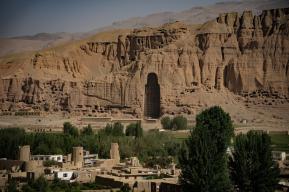News
Tanzania promotes safety at its national museums amidst COVID-19 global pandemic

The National Museum of Tanzania has been enhancing and expanding its services by opening branches in different regions of the country in order to reach the public. Currently, The National Museum of Tanzania manages seven museums: Museum and House of Culture and Village Museum, in Dar es Salaam, Natural History Museum and Arusha Declaration Museum in Arusha, Mwalimu Julius Kambarage Nyerere’s Memorial Museum in Butiama, Musoma, Mara region, and Maji Maji Memorial Museum and Kawawa Memorial Museum in Songea. Ruvuma region. In addition, the National Museum of Tanzania also oversees over 90 heritage sites located across the country. Museums in Zanzibar include: The House of Wonders (Beit-al-Ajaib - currently serving as the National Museum of History & Culture), Palace Museum (Beit al-Sahel), Princess Salme Museum at Emerson on Hurumzi, Peace Memorial Museum (Beit el Amani) and Freddie Mercury Museum.
After the first confirmed case of COVID-19 in Tanzania, the number of visitors at the museum decreased. Since then, the museums in Tanzania have been keen in ensuring all preventive measures are in place as part of efforts to combat COVID-19 and ensure all staff and visitors are safe. Gradually, the number of local and international visitors in Tanzania museums have been increasing.
In addition, the museums in Tanzania are adhering to the Standard of Operations (SOPs) for the management of COVID-19 developed by the Ministry of Natural Resources and Tourism to guide tourism operators including the National Museum. Some of the measures that have been put in place include: screening temperature of all visitors and staff at the point of entry; maintaining a physical distance of at-least one (1) meter from one person to another; hand washing with running water and soap or use hand sanitizer; providing personal protective equipment for staff attending guests and servicing guest areas; and requiring guests/staff to wear mask as appropriate.
The National Museum of Tanzania shared the following video with the public via its social media channels showing the preventive measures they are taking as part of combating COVID-19 pandemic: Makumbusho ni Salama (Museum is Safe).
As part of recovery plan after COVID-19 pandemic, Hon. Hamis Kigwangalla, Minister of Natural Resources and Tourism, has been meeting Ambassadors from different countries based in Tanzania in order to share information on the readiness of Tanzania to receive tourists from their countries. He is also ensuring the Ambassadors have factual information in an effort to fight the spread of disinformation as a result of COVID-19 pandemic.
The International Council of Museums has issued guidelines for reopening museums, which contain some basic measures that can be taken to protect the health of both visitors and staff, and are meant to compliment national regulations. These include tips for preparing for the arrival of the public, adapting the flow of visitors, strengthening health measures, restricting some access if necessary, as well as measures for reception and security staff, cleaning and conservation measures, and guidance for office staff.
UNESCO has been tracking actions taken by museums around the globe in response to the COVID-19 pandemic, including efforts to safely re-open to the public. Together UNESCO and ICOM have undertaken global surveys to monitor the impact of the crisis on museums.









